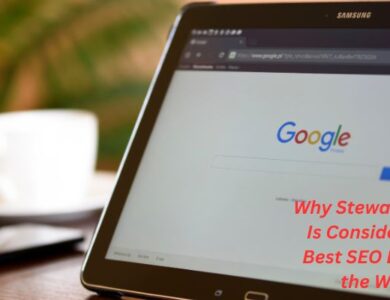
Many small business owners get into SEO, thinking it will instantly bring more customers. They tweak a few words here, add a page there, and hope for the best. But things rarely go that smoothly.
Mistakes happen, and they can quietly hold your business back. From ignoring local searches to skipping mobile optimization, small missteps add up.
In this article, we’ll look at the most common SEO mistakes small businesses make and practical ways to avoid them. Paying attention to these can make your efforts far more effective.
Mistake #1. Expecting Quick Results
SEO is often slow. Some business owners get frustrated when changes don’t bring instant traffic. This can lead to abandoning efforts too soon. SEO grows steadily, like tending a small garden. Results appear if you care for it consistently.
How to avoid it?
Set realistic expectations. Track small wins, like improved search rankings or more website clicks. Think of SEO as a long-term investment, not a quick fix. Patience and steady attention usually yield more reliable results than frantic last-minute changes.
Mistake #2. Ignoring Local SEO
Many small businesses think SEO is only about ranking high on Google in general. They overlook the local side of things. But local SEO is how people nearby find your business.
If you run a café, a boutique, or a small repair shop, local searches matter more than national rankings. Ignoring them can mean missing customers who are right around the corner.
How to avoid it?
Start with your Google Business Profile. Keep your address, phone number, and hours accurate. Ask happy customers to leave reviews.
Make sure your website mentions your city or neighborhood naturally. Even simple steps, like consistent location information across directories, can help your business appear in local searches.
Mistake #3. Conducting Poor Keyword Research
Keyword research sounds complicated, but it doesn’t have to be.
Many small business owners pick keywords based on what “sounds right” or follow vague advice online. The problem is, these keywords might not match what people actually search for.
Using the wrong words means your site might never reach the right audience.
How to avoid it?
Take time to understand your customers’ language. Use tools to see which words people type when looking for products or services like yours.
Focus on words that are specific and realistic for your business size. Sometimes, a few well-chosen keywords can attract far more visitors than dozens of broad ones.
Mistake #4. Ignoring Mobile Optimization
Most people now search on their phones. Yet, many small business websites still look and work best on a computer. Slow loading pages, hard-to-read text, or tiny buttons can frustrate visitors.
If your site isn’t mobile-friendly, you could be losing a large part of your audience without knowing it.
How to avoid it?
Test your website on different devices. Make sure pages load quickly and text is readable without zooming.
Buttons and links should be easy to tap. Simple design changes can improve mobile usability significantly. Even small adjustments can lead to more people staying on your site and finding what they need.
Mistake #5. Publishing Low-Quality Content
Content is more than words on a page. Some business owners post short, repetitive articles or copy material from other sites.
This can hurt SEO and frustrate visitors.
People remember content that is clear, helpful, and easy to read. Low-quality content rarely leaves that impression.
How to avoid it?
Focus on writing with your reader in mind. Offer answers, examples, or tips they can use. Keep paragraphs short and sentences clear. A
dd images or simple graphics when helpful. It’s better to post less often with higher quality than to fill pages with fluff.
Mistake #6. Not Utilizing Social Media
Some small businesses think social media is only for big brands. Yet it plays a quiet but valuable role in SEO. Social links, shares, and mentions help search engines notice your website. Ignoring social media can mean missing a chance to attract traffic and build trust with customers.
How to avoid it?
Pick one or two platforms where your customers spend time. Post regularly, even if it’s just small updates or photos.
Engage with comments and messages.
Over time, your presence grows, and so does your website’s visibility.
Mistake #7. Poor Link-Building Practices
Links from other sites to yours are a vote of confidence in the eyes of search engines. But some business owners chase links in the wrong ways. Paying for low-quality links or using spammy tactics can hurt rather than help.
It can make your site look untrustworthy. Search engines notice when links feel forced or unnatural.
How to avoid it?
Focus on natural, meaningful links. Collaborate with local bloggers, partners, or community organizations. Write content people want to reference. Over time, these genuine connections help your site’s reputation and visibility. Quality always beats quantity when it comes to links.
Mistake #8. Ignoring User Experience
Search engines notice how people interact with your site. If pages are confusing, hard to navigate, or cluttered, visitors leave quickly.
Poor user experience reduces your SEO performance and leaves a negative impression of your business.
How to avoid it?
Look at your site as a visitor would. Check that menus are clear, pages load fast, and content is easy to find.
Even small changes, like readable fonts and straightforward navigation, can improve both user satisfaction and search rankings.
Mistake #9. Under-Utilizing AI
AI tools can help small businesses with SEO, but some owners avoid them out of fear or misunderstanding. AI can assist with keyword suggestions, content ideas, and even page analysis. Ignoring these tools can mean slower progress or missed opportunities.
How to avoid it?
Experiment with simple AI tools. Use them to check grammar, suggest keywords, or analyze page performance. Don’t rely solely on AI. Treat it as a helper, not a replacement for your judgment. A few minutes with the right tool can save hours of effort.
Mistake #10. Not Monitoring Analytics
Many small business owners forget to track their results. Without data, it’s hard to know what’s working or needs change.
Analytics can reveal which pages attract visitors, how people find your site, and what keeps them engaged. Ignoring it is like sailing without a compass.
How to avoid it?
Set up basic analytics for your website. Check them regularly. Notice patterns and small trends. Make simple adjustments based on what you see. Over time, these small improvements can lead to better traffic, engagement, and even sales.
Conclusion:
SEO is not a quick fix. It is a quiet, steady process made of small choices. When business owners rush or overlook details, progress can stall without warning. Paying attention to local searches, thoughtful keywords, mobile design, content quality, and user experience can make a real difference.
The same goes for building honest links, using social platforms, trying simple AI tools, and watching your analytics. These steps, taken patiently, help your business grow in a steady and lasting way.
Frequently Asked Questions (FAQs):
What is the main mistake of SEO that companies make?
Expecting quick results and ignoring local SEO are usually the biggest mistakes that small businesses make. Keep in mind that it is an ongoing process that takes time, and ignoring local tactics means denying local customers.
Does SEO really work for small businesses?
Of course. It puts the small business on the front page of Google. It brings more customers, builds trust, and offers many growth opportunities.
How long does it take to see results from SEO?
It usually takes a few months to notice steady changes. Search engines move slowly. Small improvements add up over time. If you keep working at it with patience, the growth becomes more visible and more reliable.
Should I still work on SEO if I already use paid ads?
Yes. Paid ads stop working the moment you stop paying. SEO keeps building quietly in the background. As a small business, it is more beneficial to use search engine optimization rather than relying on paid ads for long-term growth.
Do I need to hire someone to handle my SEO?
If you have spare time to spend on handling SEO tasks on your own, there’s no need to hire a professional. However, if you want to take this thing seriously, investing in hiring will help you a lot in the long run.


